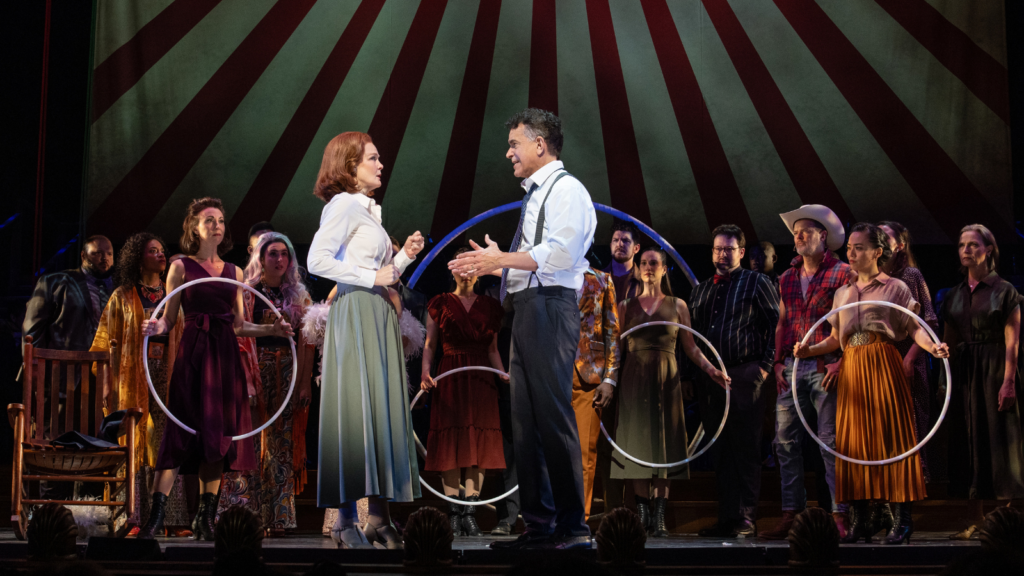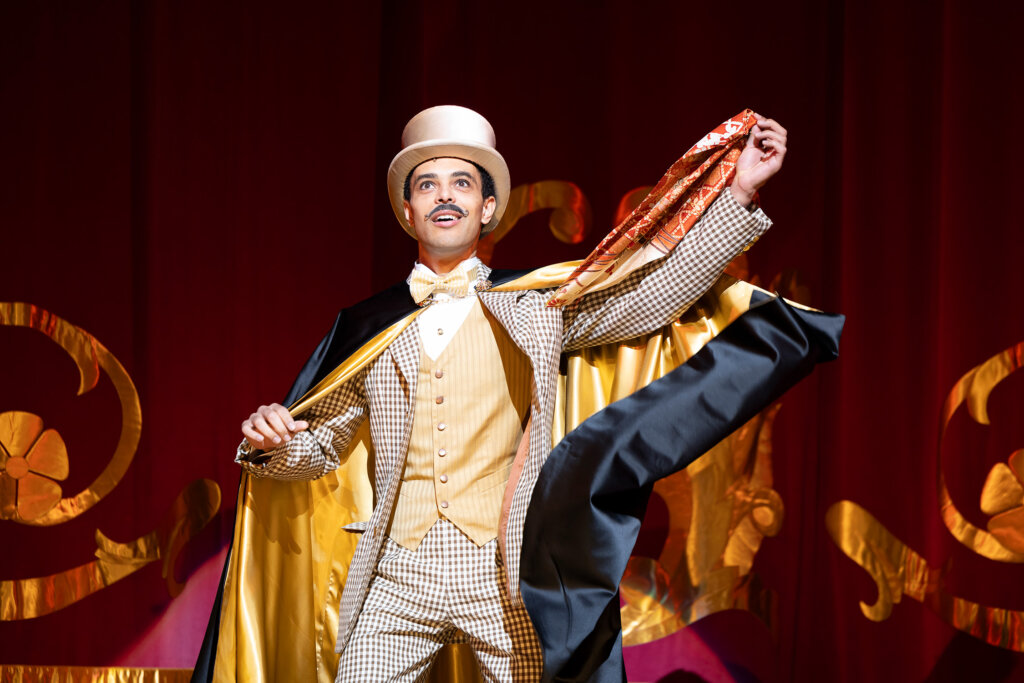Kurt Weill/Ira Gershwin Score Brought to Life
The Collegiate Chorale’s 12 March concert of The Firebrand of Florence was greeted by ovations from the New York press corps, presented with their first opportunity in sixty-four years to see Kurt Weill’s 1945 Broadway operetta. For the occasion, the Collegiate Chorale assembled a sterling cast, including Nathan Gunn (as Benvenuto Cellini, the “Firebrand”), Anna Christy (Angela), Victoria Clark (Duchess), Terrence Mann (Duke), Krysty Swann (Emilia), and David Pittu (in a host of small roles). Conducted by Ted Sperling, the concert performance was directed and narrated by Roger Rees in the newly renovated Alice Tully Hall at Lincoln Center. A sampling of the reviews includes:
“For musical theater buffs, flops always are more intriguing than hits ñ especially if their creators have impeccable credentials. And it doesn’t get more classy than Kurt ‘Threepenny Opera’ Weill and Ira ‘Porgy and Bess’ Gershwin. Shorn of much of what apparently was a misguided book and its original stodgy staging, the Weill-Gershwin score glistened in a gloriously sung performance that vibrantly celebrated the vanished world of operetta spiced up with a bit of more modern musical-comedy sass.”
Michael Kuchwara, Associated Press
“As it should, the concert, presented by the Collegiate Chorale, put the emphasis squarely on the score. Weill composed a lush pastiche of chorales, madrigals, arias and duets. Gershwin gave them ingenious rhymes and scintillating wordplay.”
Jeremy Gerard, Bloomberg.com
“Ted Sperling, conducting the New York City Opera Orchestra, gave special point and shape to the large-scale set pieces, especially the ones dominated by the dance rhythms that Weill develops and expands so ingeniously. All the singers were a pleasure to hear, surely the ideal cast that the composer had in his imagination.”
Peter G. Davis, Musical America
“Kurt Weill’s operetta The Firebrand of Florence was doomed by an inadequate cast and a lackluster staging when it opened on Broadway in March 1945. A lively semi-staged performance at Alice Tully Hall revealed both the intricacies of Weill’s vibrant score and the libretto’s comedic elements, aptly framed by Roger Rees’s narration and direction.”
Vivien Schweitzer, New York Times
“It has taken 64 years, but justice seems finally to have been done. Whatever its book problems (it was, after all, written as an operetta, not a ‘new’ musical in the sense of Lady in the Dark), the score is gorgeous and was sumptuously served by the first-rate soloists and, of course, the Collegiate Chorale. What perhaps creates some confusion is that operetta lyrics tend to be mushy. That was something Ira Gershwin was incapable of doing. Long passages of the work are through-composed, and Weill’s sense of how to build drama is manifest. And there are several luminous melodies, the recurrent ‘Life, Love and Laughter’ and the song he wrote for Lenya, ‘Sing Me Not a Ballad.'”
Howard Kissel, New York Daily News
Based on Edwin Justus Mayer’s 1924 stage hit The Firebrand, the show reunited Weill with his lyricist for Lady in the Dark, Ira Gershwin. Mayer, who had gone from playwright to screenwriter of such Hollywood screwball comedies as To Be or Not to Be, was recruited to rewrite his play into the show’s book. After the original Broadway run in 1945 in a lavish spectacle over-produced by Max Gordon, The Firebrand of Florence disappeared into undeserved obscurity until the mid-1990s, when highlights from Firebrand were included in two recorded compilations of Weill’s Broadway music. A concert performance in 2000 by the BBC Symphony Orchestra and Sir Andrew Davis in London, followed by a BBC radio broadcast, led to the release of a complete CD recording of the score on the Capriccio label. A critical edition of the full score, edited by Joel Galand, has been published by the Kurt Weill Foundation for Music and European American Music Corporation as part of the Kurt Weill Edition. Since the London performance, Firebrand has been heard in universally acclaimed concerts in Vienna and at the Kurt Weill Fest in Dessau, Germany.


